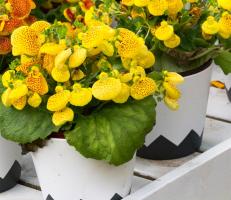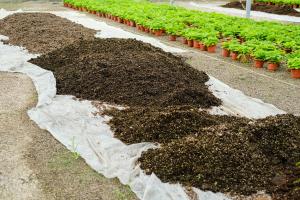Can a Bonsai Tree be Planted Outside?
Bonsai trees are very popular among gardening enthusiasts and homeowners who want to add a touch of green to their homes. These tiny trees are not only aesthetically pleasing but also represent a deep cultural and spiritual connection between humans and nature. Bonsai trees are traditionally grown indoors, but many people are curious if they can plant them outside. The answer is yes; a bonsai tree can be planted outside, but there are several factors to consider before doing so.
Factors to consider when planting bonsai trees outside
Before planting a bonsai tree outdoors, the following factors must be considered:
Climate
The bonsai tree species must be able to tolerate the climate of the location where it will be planted. Some bonsai trees can survive colder climates, while others need moderate to warm ones.
Location
The location where the bonsai tree will be planted must have adequate sunlight, shade, and protection from strong winds. Also, it should not be too close to other trees, as they can provide too much shade or compete for water and nutrients.
Soil
The soil must be well-drained and airy to allow proper root growth and water absorption. The soil must also be rich in nutrients to sustain the bonsai tree's growth and development.
Pot Size
The pot in which the bonsai tree is being grown should be shallow to limit root growth. When planting outdoors, it is crucial to select a suitable pot size and shape so that the bonsai tree can be easily transported if needed. The pot also serves as a protective barrier for the roots.
Advantages of planting bonsai trees outdoors
Planting bonsai trees outdoors has some significant benefits, including:
More space for growth
The primary advantage of planting a bonsai tree outside is that it has more space to grow, which improves its overall health and lifespan. Growing outdoors also mimics the tree's natural habitat, which is beneficial for its growth.
Natural benefits
Plants that are planted outdoors are exposed to natural sunlight, air, wind, and rain, allowing the bonsai tree to thrive naturally. Outdoor plants are also less prone to pests and diseases than indoor plants, making it easier to keep them healthy.
Improved aesthetics
Bonsai trees planted outside can add an impressive visual element to your garden. The tiny trees make a unique and eye-catching addition to your landscape, creating an exotic and captivating look.
Conclusion
Planting a bonsai tree outdoors is possible under the right circumstances, including climate, soil, pot size, and location. However, before planting a bonsai tree outside, it is important to consider these factors, as well as the available space and resources. If you are planning to plant a bonsai tree outdoors, take the necessary precautions to ensure its health, growth, and survival.

 how many times do yo...
how many times do yo... how many planted tre...
how many planted tre... how many pine trees ...
how many pine trees ... how many pecan trees...
how many pecan trees... how many plants comp...
how many plants comp... how many plants can ...
how many plants can ... how many plants and ...
how many plants and ... how many pepper plan...
how many pepper plan...





























